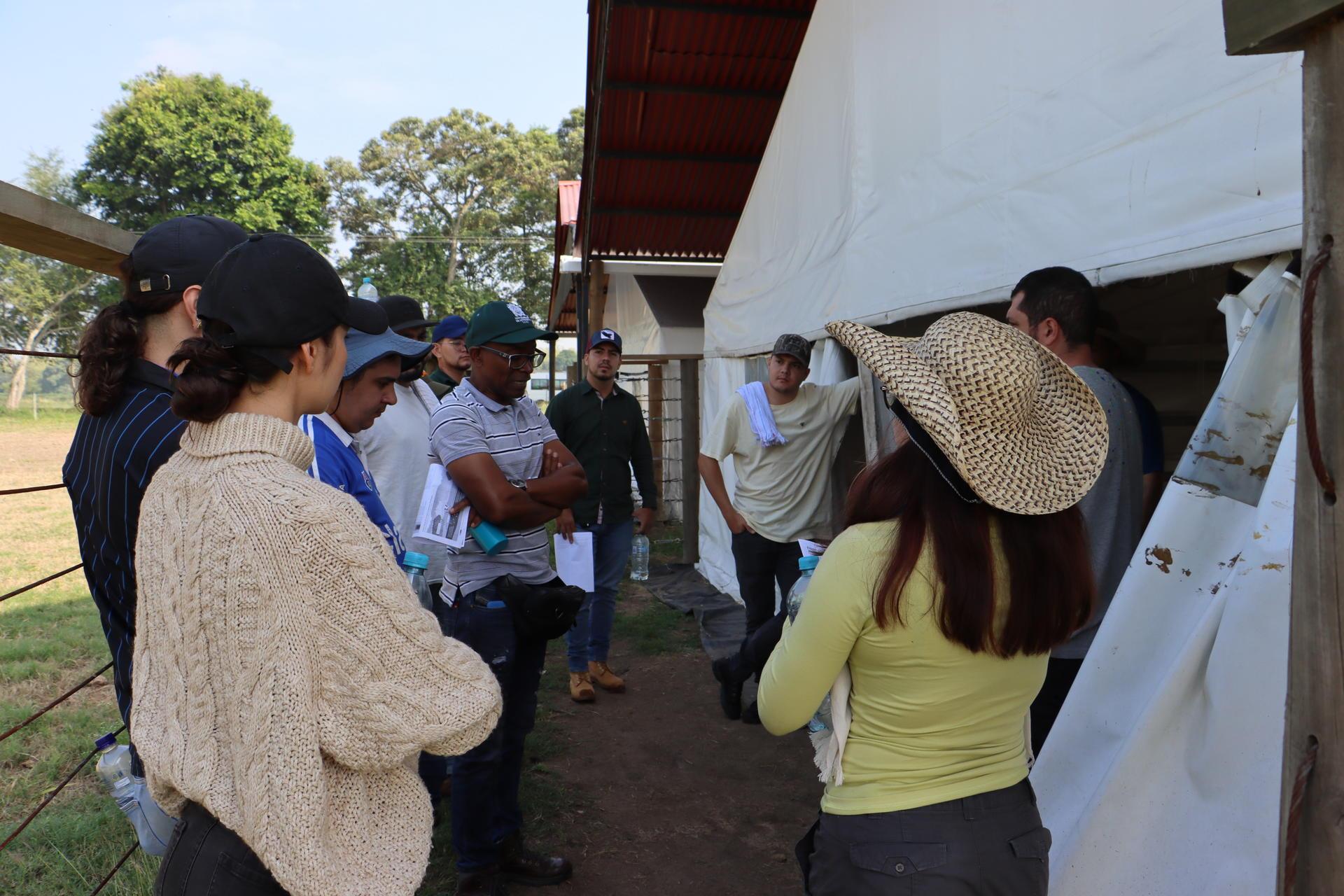Blog Towards Climate Transparency: Strategies to Enhance National Greenhouse Gas Inventories

By Leonardo Rodriguez; Mike Bastidas; Alejandro Ruden; Jacobo Arango – Tropical Forages Program
Researchers from the Alliance Bioversity-CIAT participate in the “Low Carbon Livestock” research network, a Latin American initiative to improve national inventories of greenhouse gas emissions and absorptions.
National inventories of greenhouse gases (GHGs) serve as pivotal tools for assessing a country's climate progress. They enable the calculation of human-induced GHG emissions and absorptions over a specific timeframe. In Colombia, for instance, GHG emissions amount to 302,974 Gg CO2 eq, with the Agriculture, Forestry, and Other Land Uses (AFOLU) sector accounting for 59% of these emissions. While this sector (unlike others such as energy or transportation) displays an absorption of -23,776 Gg CO2 eq, refining calculations, especially in sustainable livestock farming, remains paramount.
Although many current calculations rely on a Tier 1 approach, which is more generalized, there's a growing acknowledgment of the need to refine these estimates. The CGIAR's Livestock and Climate Initiative, for example, champions international cooperation to enhance accounting methodologies in Latin America. This collaboration aims to boost the accuracy and efficacy of inventories, emphasizing the Tier methodology and critical areas like sustainable livestock farming.
Low Carbon Livestock Research Network
A cornerstone strategy in enhancing GHG inventories in Colombia is the "Low Carbon Livestock" research network, affiliated with the Ibero-American CYTED program. This multidisciplinary network, comprising 58 researchers from nine Ibero-American countries, focuses on reviewing and bolstering current methodologies to quantify GHGs from livestock activities, such as methane and nitrous oxide emissions.
Since its inception in 2020, researchers from the Bioversity & CIAT Alliance, associated with the Livestock and Climate Initiative, have been pivotal figures in this network. They actively participate in events, contribute relevant research on the subject, and promote the exchange of methodologies and knowledge.
Benefits and Future Outlook
Enhancing the accuracy of GHG inventories would not only bolster national reports but also streamline the implementation of mitigation initiatives, such as Nationally Determined Contributions (NDCs) under the Paris Agreement. Additionally, this could pave the way for Colombia and other regional nations to engage in carbon credit programs and receive compensations for environmental services.
Knowledge exchange among Ibero-American nations is paramount. This collaboration strengthens regional capacities to devise effective and sustainable mitigation measures. In essence, by participating in the "Low Carbon Livestock" research network, the CGIAR's Livestock and Climate Initiative solidifies its unwavering commitment to sustainable livestock management and GHG reduction across the Ibero-American region.
For more information please visit:
- Presentation: current status and actions required to improve INGHG inventories in relation to nitrous oxide generated by manure in the pasture system and in manure management in Colombia (In Spanish) https://hdl.handle.net/10568/125830
- Presentation: current status and actions required to improve INGHG - enteric methane Colombia (In Spanish: https://hdl.handle.net/10568/125992
- Journal Article: Status and opportunities for improvement in greenhouse gas emission inventories for the cattle production in Latin America and the Caribbean region: A perspective https://doi.org/10.1371/journal.pclm.0000101
- Presentation: Importance of soil carbon stocks for the purposes of national GHG inventories https://es.slideshare.net/TGFT/importancia-de-los-stocks-de-carbono-en-suelo-para-fines-de-inventarios-nacionales-de-gei
